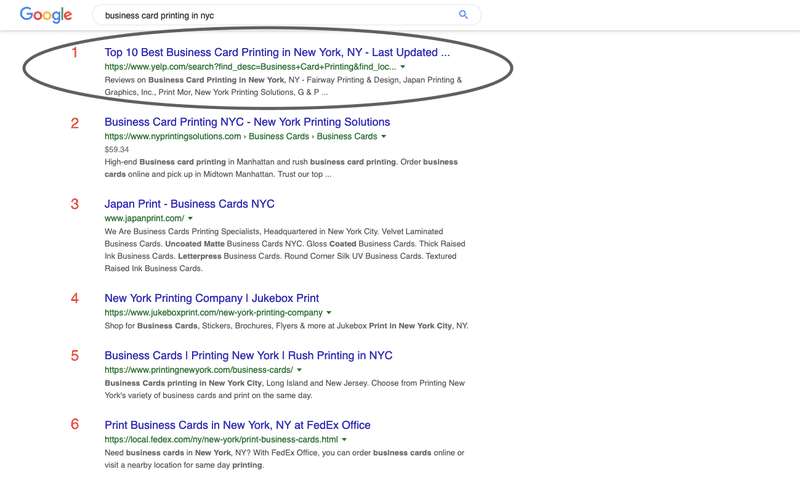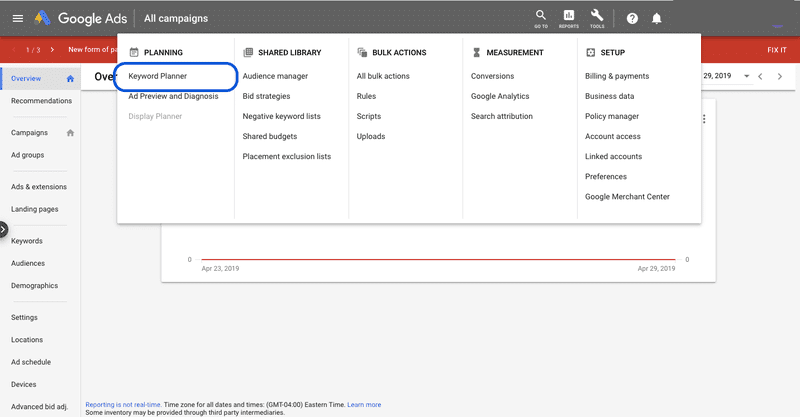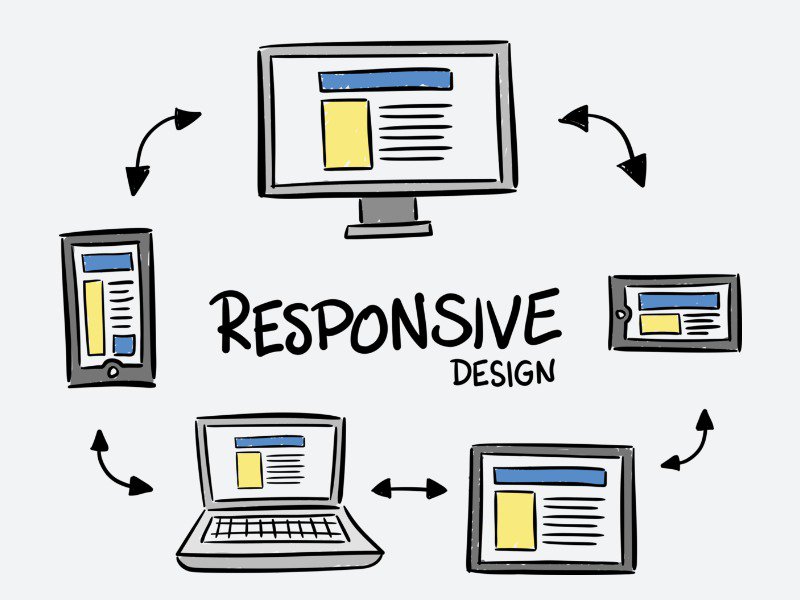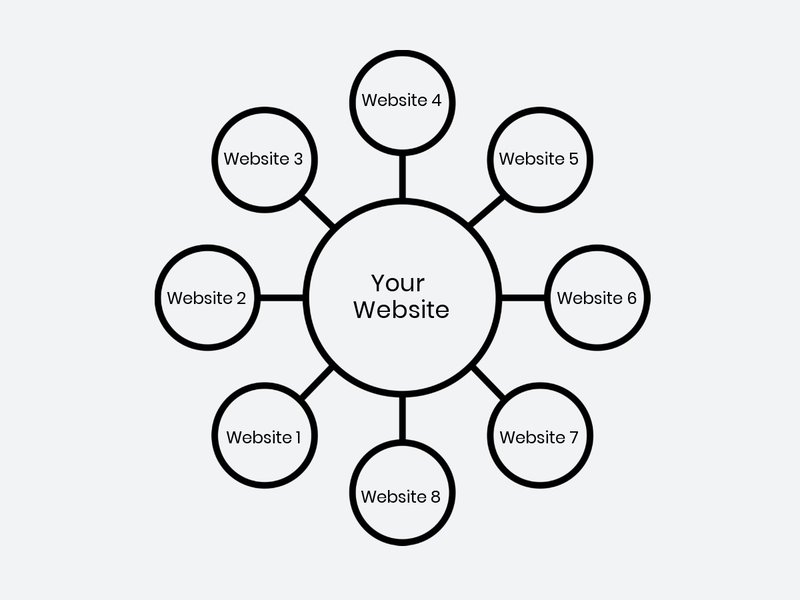Although the term search engine optimization (SEO) is used everywhere, it is surprising that many business owners and marketers don’t truly understand how it can help them. Starting with these basic SEO tips for beginners will undoubtedly make your decisions more accurate and save time and money, improving your investment return in the future.
We all know that search engine optimization is vital in garnering exposure for your business. Knowing how to use it effectively can prove beneficial for your products and services.
Before starting with some basic SEO tips for beginners, we must ensure everyone knows what it is.
What is SEO?
Search engine optimization is the technique you can use to help your website rank higher in organic or natural search results.
For example, if someone goes on google and types in “business card printing in NYC,” how quickly is the user exposed to your printing company?
It is widely known that those businesses that appear on the first page of search terms generate the most sales from that research.
We will focus on quick tips to market your business with search engine optimization using organic or natural techniques for this specific article.
We will provide you with some references if you want to go deep into SEO studies.
There is the option to create paid search engine optimization techniques. Still, we won’t go into those here simply because they are generally costly, and more importantly, over 80% of search engine users never click on paid search ads.
What does it take to rank on search engines like Google?
Three factors explain where a search engine places your website: Rank, Authority, and Relevance.
Rank
Rank is your website’s position on the search page when a user types in a keyword.
If your website is number one when sometimes typing in “business card printing in NYC,” then your rank is one and so forth. Tracking where you rank over time is the premier way to judge how your search engine optimization efforts are materializing.

Authority
Authority is mainly determined by how many inbound links (links from other web properties) lead to your website.
Alternatively, how many other people have linked to your website regarding “business card printing in NYC.”
You can find several indexes that determine authority. Moz, for example, has the Domain Authority (DA) and Page Authority (PA). Majestic has the Trust Flow and Topic Flow, and Ahrefs has the Ahrefs Rank (AR) and Domain Rating (DR).
All authority ratings consider the links’ quantity and quality and the number of different unique domains that link to your site, among other metrics.

One thing to note is that the number of inbound links does not necessarily determine your authority; instead, the quality of these websites referring to you counts the most.
Relevance
Finally, relevance is determined as the search engine crawls your page to ensure your website or company does specialize in the keywords you are targeting.
Imagine comparing a business blog writing about basketball to a sports blog writing about the same topic. Of course, Google will consider the article in the sports blog more relevant to this topic.
The topic flow from Majestic is an excellent index to measure the relevance of your website.
We are sure you have heard it before, but using search engine optimization content is genuinely king when marketing your business.
However, before you dive into your search engine optimization strategy, it is a good idea to divide your techniques into two parts: on-page search engine optimization and off-page search engine optimization.
This article will give quick and structural tips for on- and off-page search engine optimization. It’s a complete guide with basic SEO tips for beginners.
On-page SEO
On-page SEO refers to the SEO that is on your website.
As we mentioned before, content is most important regarding on-page search engine optimization. Every article or story, or webpage you create should have a through-provoking headline that will push your user to click on the page.
1) One of The Most Important Basic SEO Tips For Beginners: Find The Right Keywords
One of the first basic SEO tips for beginners is finding the right keywords for your website. Without doing that, you will never be able to develop an SEO strategy. So the suggestion is to follow this checklist:
- First, your keyword has to be relevant to your target user.
- Second, it has to be according to your goals.
- Third, it has to have a competition according to your Domain and Page authority indexes.
Use free resources to see the competitiveness of your target keyword. I recommend Google Adwords to have an idea of competitiveness and traffic volume.

Think about “long tail” keywords; they can be easier to convert since users know what they want.
For example, there is less competition when you try to rank for “business card printing in NYC” than for the keyword “business cards.”
Besides that, the person looking for “business card printing in NYC” is much more willing to convert than someone looking for business cards, which may be just looking for examples, or the definition of a business card, or just examples of design.
Also, again, don’t forget to choose keywords that make sense to your business.
2) Keep Your URL Simple
One of the most basic SEO tips for beginners is that you can bold specific keywords and phrases to emphasize their importance. Your URL structure is also highly relevant as you want to keep it consistent.
For example, if your website is www.howtouseseo.com and you write an article named “101 SEO tips to rank your website high: a beginners guide to digital marketers”, it’s much better to use a URL like:
www.howtouseseo.com/ SEO-tips-rank-higher
Instead of an URL like:
www.howtouseseo.com/101-SEO-tips-to-rank-your-website-high-a-beginners-guide-to-digital-marketers
Or even worse:
www.howtouseseo.com/article 12324-external-link.
3) Fix Your Title Tags And Meta Description
For on-page SEO, it is also essential to understand the concepts of title tags & meta description.
Every webpage you create has a title tag. The title tag is the text description in your web browser’s upper left corner. It should have no more than 54 characters.
Meta tags are snippets of code you can include within your webpage’s HTML; it’s a short description of what your specific website is about.
Meta descriptions usually are the first place search engines look to find a text to put under your blue link when it lists your website. The meta description is limited to 160 characters.

In the example above, the title tag is:
“Business Cards | Printing New York | Rush Printing in NYC.”
Also, the meta description is:
“Business Cards printing in New York City, Long Island, and New Jersey. Choose from Printing New York’s variety of business cards and print on the same day.”
4) Use Internal Links
Another powerful on-page SEO tool you can focus on is internal linking, in which you can connect individual sections of your website via hyperlinks.
For example, if you happen to touch on a keyword related to another of your website’s topics on a page of your website, you can hyperlink to that section.
Like the overall marketing and advertising industry, search engine optimization is continuously changing.
5) Make Your Website Mobile Responsive
Responsiveness shouldn’t be a surprise to anyone reading an article on SEO.
The mobile trend was moving to the foreground in years past, and savvy marketers have made every effort to prioritize mobile-friendliness.
However, a few years ago did mark the first time we saw Google make a concerted effort to prioritize it in its own rankings system.

While responsiveness wasn’t the rankings disaster that some analysts predicted, it signaled a search engine’s intent to provide users with a quality mobile experience.
If search rankings aren’t affected mainly by mobile-friendliness now, it’s only a matter of time before older, non-responsive sites start losing ground in mobile and desktop searches.
Off-Page SEO
While you can unquestionably control your on-page search engine optimization efforts and results, off-page SEO is often seen as more complicated, and with good reason.
Off-page search engine optimization consists of building relationships with other websites through engaging and exciting content and reaching out to individuals who have high-ranking sites.
This process of building relationships for your website is called link building: linking to you, how they are linking to you, how often they are linking to you, and how your content is shared on social media.
All these factors impact your off-page SEO efforts, overall SEO strategy, and future. This article discusses how to market your business with off-page search engine optimization.
6) Who is Linking to Your Website?
Many tools help you determine websites that already link to yours, which is an essential factor in ranking.
Often 10-15 links from your friend’s blog/websites are worth less than a link back from a major publication or website – so aim high!
Search engines treat links from significant websites with more priority because they receive millions of visitors daily.

When reaching out to other websites from link banks, ensure to focus a more significant percentage of your efforts on more extensive publications as they have a higher ability to provide your website’s awareness increases.
Frequently, SEO teams have been working with directories, classified ads, and bookmarking submissions. Although this can be an old practice, some directories can still be worth the time, especially those related to your website.
Even not being well ranked on the Search Engines, some of them may be necessary to increase the number of links to your website. Just be careful with the quality and excess submissions on those websites.
7) How Are Others Linking to Your Website?
Like the on-page, the anchor text is relevant when trying to rank your website for specific keywords.
When asking other websites to link to your website, try your hardest to ask for a keyword-rich anchor text link which means that they will link to your site via a keyword they use in an article.
For example, if your website focuses on selling blue paint and reaching out to a home décor website, ensure that in a blog post or on a page, whenever “blue paint” is used, they link to your site.
’It’s also good to have anchor text related to your website’s name. Much better if the name of your company is related to your keywords. For example, in the company that prints business cards in New York, the anchor text has a keyword-optimized name, which is also the website’s name.

That said, if the website cannot guarantee a keyword-rich anchor text link, then any backlink works. What is the website getting out of linking to your website?
A common practice among websites is what is called reciprocal links. If a site links to you, it is common practice to link back to them.
If you are thinking of merely paying for backlinks, the search engine community severely frowns upon this practice and could get your website blacklisted if caught.
8) Using Social Media to Spread your Content Counts?
Using social media platforms like Facebook, Twitter, and LinkedIn to disseminate your content is very popular.
According to SEO Moz, the number of social followers and activity that a webpage has is a relevant factor in the page’s ability to rank on search engines.
Search engines have smartly concluded that content shared via social media (especially if the channel is popular and has plenty of followers) is highly influential. To take full advantage of sharing your content via social media, add social media sharing buttons next to your content.
Google has denied using social media as part of its ranking factors. However, strong evidence points to a correlation between social signals and SERP positions.
While they might not be built into algorithms now, things like brand mentions and implied links could begin to move the needle on the site’s rankings.

We can see movements in this direction with the agreement between Twitter and Google to begin indexing individual tweets and even including them in rich snippets in mobile results.
As Facebook continues to grow into a behemoth itself, trying to get into the search game, Bing and Google may respond by incorporating social signals more directly into their results.
What form that integration will take is yet to be seen, but the power of social sharing in determining the quality of content will be too much for search engines to ignore.
9) Using Email to Spread Your Content
The email has consistently been used to generate new leads for online businesses. Still, even though the power over the off-page SEO is questionable, sending daily or weekly emails to your email subscription base can generate constant traffic to your website, and they can indirectly help your SEO.
According to the Search Engine Journal, qualified traffic from emails can increase your website’s time and reduce the bounce rate. Although there is no proof that this impacts your website’s authority directly, a positive relationship exists between a low bounce rate and better rankings.
Another significant advantage of email marketing is that you have probably curated your content to your audience if you have become an experienced email marketer. You optimized the best headlines, articles, and topics your audience will open and spend time on.
This quality content will affect the rankings since it will also reduce the bounce rate and increase your website time.
Managing this routine has never been easy if you use platforms such as MailChimp.
Remember, before embarking on an email campaign, ensure the content is exciting and engaging, test it, and clean your email base often. The worst thing one can do is drive readers to weak content.
In the end, utilizing off-page SEO tactics is vital to your overall strategy of marketing your business. Also, please, ensure that you pair them with high on-page SEO tactics.

10) Content is King
It’s all about pleasing Google and Google’s searchers, which is the prevailing sentiment of search engine optimization.
It’s a short-sighted view. Many factors go into how a page ranks, but the overarching goal for Google is—will the user be getting something useful?
Elements such as click-through and bounce rates go into a page’s rank. Technical factors and keywords don’t control those pieces; they’re driven by your users’ experience on your website.
A Google search doesn’t want to see a meta description stuffed with keywords.
Give them a reason to click. When users get to the landing page, they want to see something useful that answers their questions or piques their interest more. That will keep them on the page longer. That positive experience will signal to Google that your page is relevant and that Google should reward your page with a better position.
SEO isn’t just for crawlers anymore; it’s becoming a more human experience.
11) There is no Cheating The System
SEO is about providing relevant information to users.
That’s it. Attempting to figure out a way to trick Google into ranking your site higher isn’t a long-term solution. With Google’s regular algorithm updates and refreshes, it’s only a matter of time before the search engine realizes you’re not providing relevant information and punishes you for it.
Google’s Panda and Penguin updates have affected a large percentage of websites’ traffic—with only periodic updates.
However, in the future, these updates will move closer and closer to real-time, and sites applying tricks and black-hat tactics will have nowhere to hide (real-time updates will also mean a quicker recovery from penalties).
Short-term SEO tricks will become more and more short-term.
The only long-term solution to increasing search engine visibility is quality, relevant content.
Recommended Resources To Find More Relevant Basic SEO Tips For Beginners
The best way to keep up with industry trends is to read and pinpoint authoritative resources on professional and basic SEO tips for beginners. Some of my favorite resources are:
In Conclusion
It can take time to see a return on your SEO efforts, so knowing these basic SEO tips for beginners is already a great start.
There have been times when backlinks ruled supreme and others when keywords were thriving. Much of SEO work has been an effort to stay one step ahead of Google and search engines.
Lately, search engine optimization is less about finding tricks to beat the system and more about standing out from within the system.
Of course, SEO’s future is unknown, but the transparency of search engines and current case studies are providing a viable roadmap to follow.

Christian has over ten years of experience in marketing agencies. Currently, he has been dedicating his time to a tech startup and also writing for major publications. He loves podcasts and reading to keep up with the latest trends in marketing.
![Basic SEO Tips for Beginners [In 2022] cover](https://totempool.com/wp-content/uploads/2019/08/SEO_75e7f52e305670c6fba8b69b5584fb2e_2000.jpg)
Do you mind if I quote a few of your articles as long as I provide
credit and sources back to your site? My blog is in the
very same area of interest as yours and my visitors
would genuinely benefit from a lot of the information you present here.
Please let me know if this ok with you. Appreciate it!
Great article! This is the type of information that are
supposed to be shared around the internet. Shame on the search engines for not positioning
this post higher! Come on over and visit my site
. Thanks =)
Thank you!
I visited several websites and this one is the only that could give me a real understanding of SEO. Simple to understand the basics and straight to the point. Thanks, Totempool!!
Hey! I’m at work surfing around and just wanted to say I love reading your blog and look forward to all your posts! Keep up the outstanding work!
Hello,
If you accept guest posts, how much would you charge? What kind of content would you accept?
Stephen
Awesome post.
Appreciate the recommendation. Let me try it out.
Sure, let us know the results.
Thanks for sharing these tips. Very informative and useful article indeed.
You’re welcome!
Hello Dear, First of all, your article is very amazing and your information about on-page SEO is very useful for me. Keep it up and thank you very much.
You’re welcome, Lee!
I just love the helpful information you provide in your articles
I appreciate you sharing this blog post. Thanks Again. Cool.
There is definitely a lot to find out about SEO. I like all the points you made
Content is still the king of SEO. But SEO still requires good amount of backlink to rank medium to high competition keywords. By the way thanks for sharing the good read.
you’re welcome!
What is actually Search Engine Optimization A Total Manual to Seo
Thanks!
This is very good information. Thanks You
This article was a pleasure to read, and I appreciate the time and effort you put into writing it.
Your article provided a lot of great examples that helped illustrate your points.